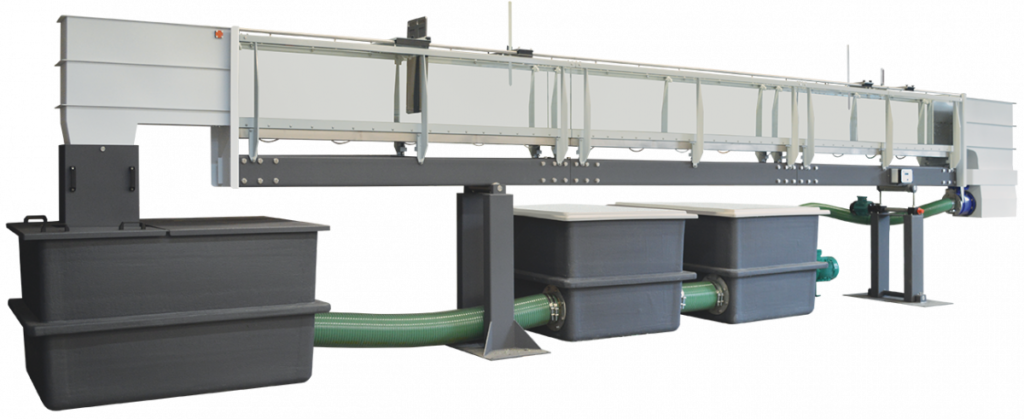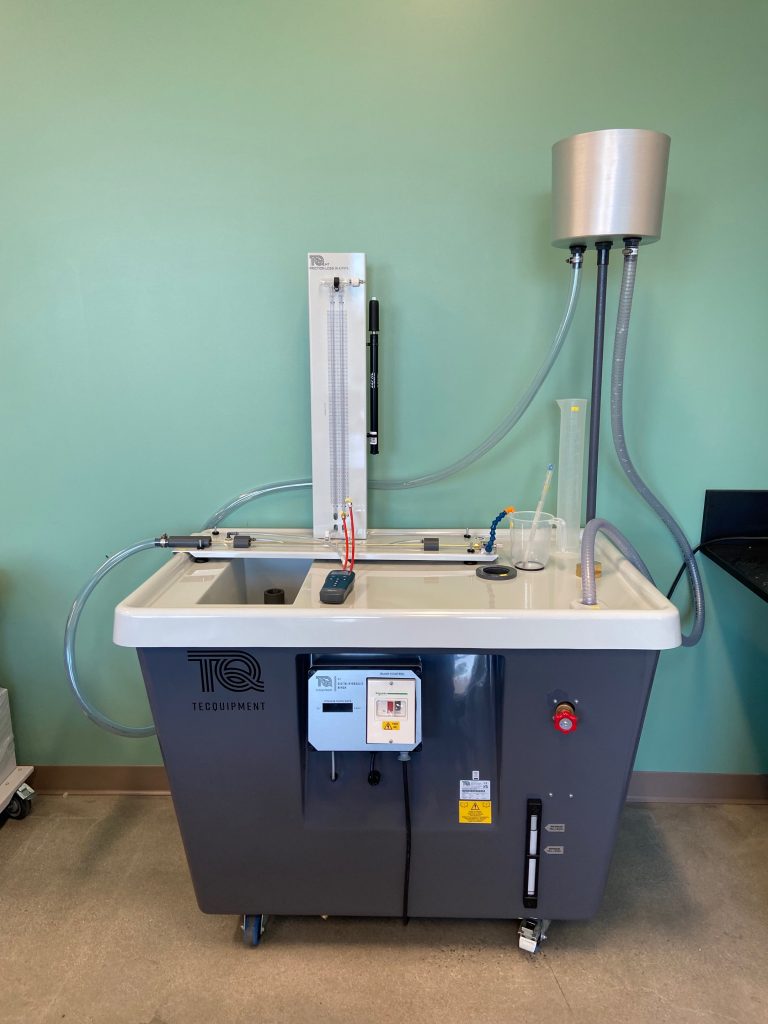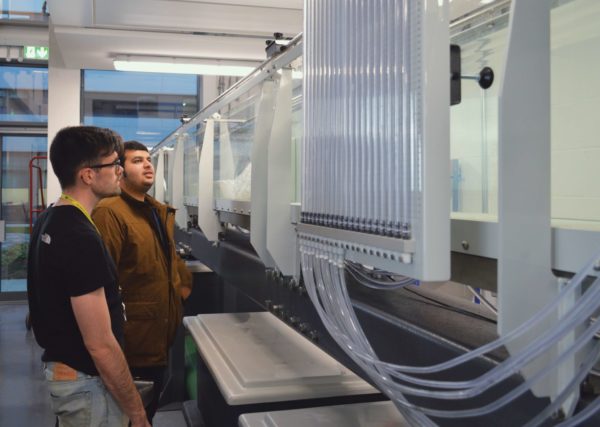Teaching fluid mechanics to undergraduate students provides them with valuable fundamental knowledge leading to career paths in various fields, including aerospace, energy, life sciences, and automotive. Giving students opportunities to experiment in fluid mechanics labs challenges them to think critically, replicate real-life scenarios in a safe environment, and understand fluid mechanics engineering concepts.
3 Considerations When Choosing Fluid Mechanics Lab Equipment
There are many types of equipment available to enhance fluid mechanics teaching. Here are three considerations to help you find the right equipment for your lab:
1. Applicability: The ability to experiment and learn in a hands-on, safe way is the most impactful method for teaching students complex concepts in engineering. Find equipment that mimics real-world scenarios to give students experience that will apply to their future jobs.
2. Reliability: Lab equipment is an investment for your institution, so choose equipment from a reputable manufacturer. With reliable equipment, you will expose many students without wasting time on maintenance.
3. Ease of use: With limited time to teach students advanced engineering concepts, find equipment that is easy for students to use without the frustration of figuring out how to operate it. There are also options for equipment that come with course materials to help determine how to use the equipment in your program.
Types of Equipment for Fluid Mechanics Labs
Fluid mechanics involves many components—from fluid dynamics to hydraulics to aerodynamics. Ideally, a fluid mechanics lab has equipment that exposes students to many fluid mechanics principles. Here are some common types of fluid mechanics equipment for universities:
- Flow meters
- Pressure gauges
- Manometers
- Pumps
- Flow Channels
- Wind tunnels
- Turbines
Fluid Mechanics Manufacturer: TecQuipment
TecQuipment (TQ) designs and manufactures market-leading engineering equipment specifically made for universities. Their equipment is easy to use and comes with many resources for professors. The equipment is also very reliable. We know some universities that are still using TQ equipment purchased over twenty years ago!
Within the fluid mechanics range, TQ offers equipment demonstrating Bernoulli's theorem, the function and dynamics of weirs, pressure and flow measurement, pipe friction, energy loss, and much more.
Here are examples of some of their products:
Meter Flume for Open Channel Flow Lab Experiments

The TecQuipment meter flume is 300 mm wide and 10 m long for student study and advanced research into a wide range of fluid flow topics. Ancillaries are available to extend learning potential and opportunities for innovative experimentation.
Hydraulic Test Bench

The TecQuipment digital hydraulic bench is a self-contained mobile bench with a recirculating water supply. It directly provides water at different flow rates to experiments and includes a digital flow display for hydraulic and fluid mechanics experiments.
Hydrology Laboratory Equipment

The TecQuipment hydrology and rainfall apparatus is a self-contained floor-standing unit consisting of a water reservoir and a tank for sand with overhead spray nozzles that simulate rainfall both stationary and moving. It is used for studying hydrology principles, including rainfall, throughflow, and the movement of water over land and rivers.
Examples of University Fluid Mechanics Labs
Universities around the world use TecQuipment product solutions in their engineering labs. Here's a peek at some of those programs:
Endicott College in Massachusetts

Endicott College started a brand new engineering program and needed to outfit a lab covering multiple fundamental disciplines with limited space. They ultimately selected TQ's H1 series hydraulic bench for the ease of use, modularity, curriculum, space-saving design, and local support from AET Labs. The scalability of the system enabled them to acquire multiple experiments that simply plug into the bench, utilizing the onboard pump, flow meter, piping, and controls.
East Tennessee State University
East Tennessee State University's history of teaching engineering technology dates back to the 1930s. They expanded their engineering program and created a new high-tech lab to teach mechanical engineering, civil engineering, and electrical engineering. Specific to fluid mechanics, they have a digital hydraulic bench. They study weirs for flow regulation and measurement and run experiments with different turbines. They also have a losses in piping systems apparatus for investigating the friction losses in various piping systems and a centrifugal pump test set.
University of Wisconsin-Green Bay

The University of Wisconsin-Green Bay opened new engineering labs to give students real-world skills needed for the workforce and to draw more students to northeast Wisconsin to meet local demand for engineers. In the fluids lab, they have a flow channel to demonstrate how barriers and other objects alter water flow. They also have hydraulic benches where students can see how different turbines work, among other equipment, all of which come with user guides with sample experiments.
If your New England university wants to enhance your engineering program or research capabilities with a fluid mechanics lab, please contact us! AET Labs is a partner to TecQuipment and New England universities in designing, outfitting, and supporting engineering labs.


